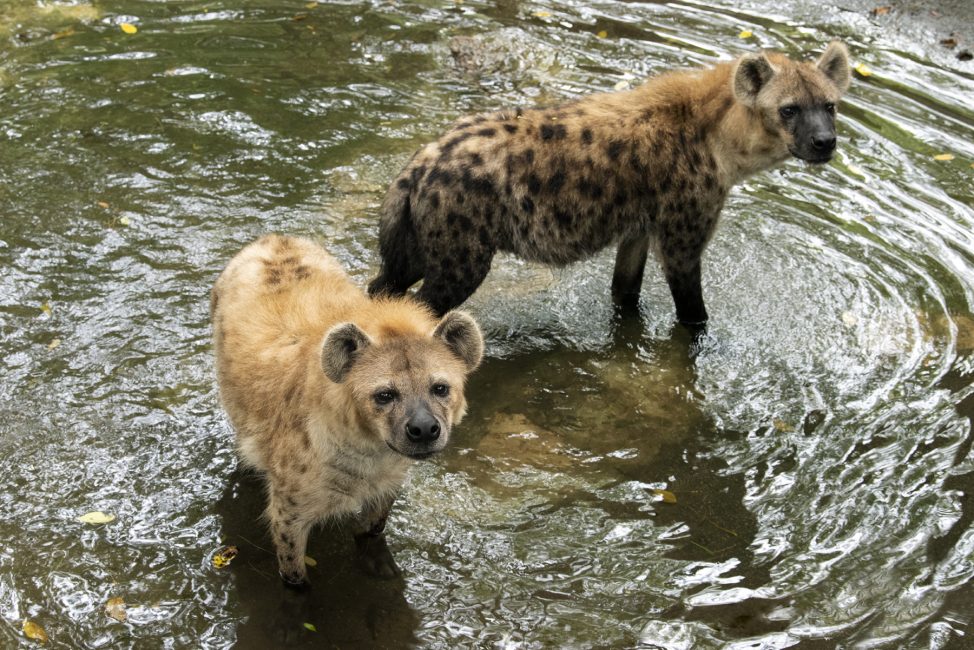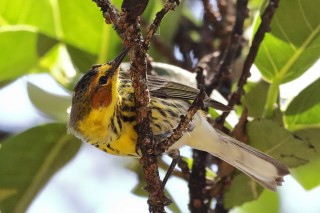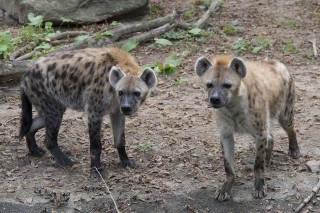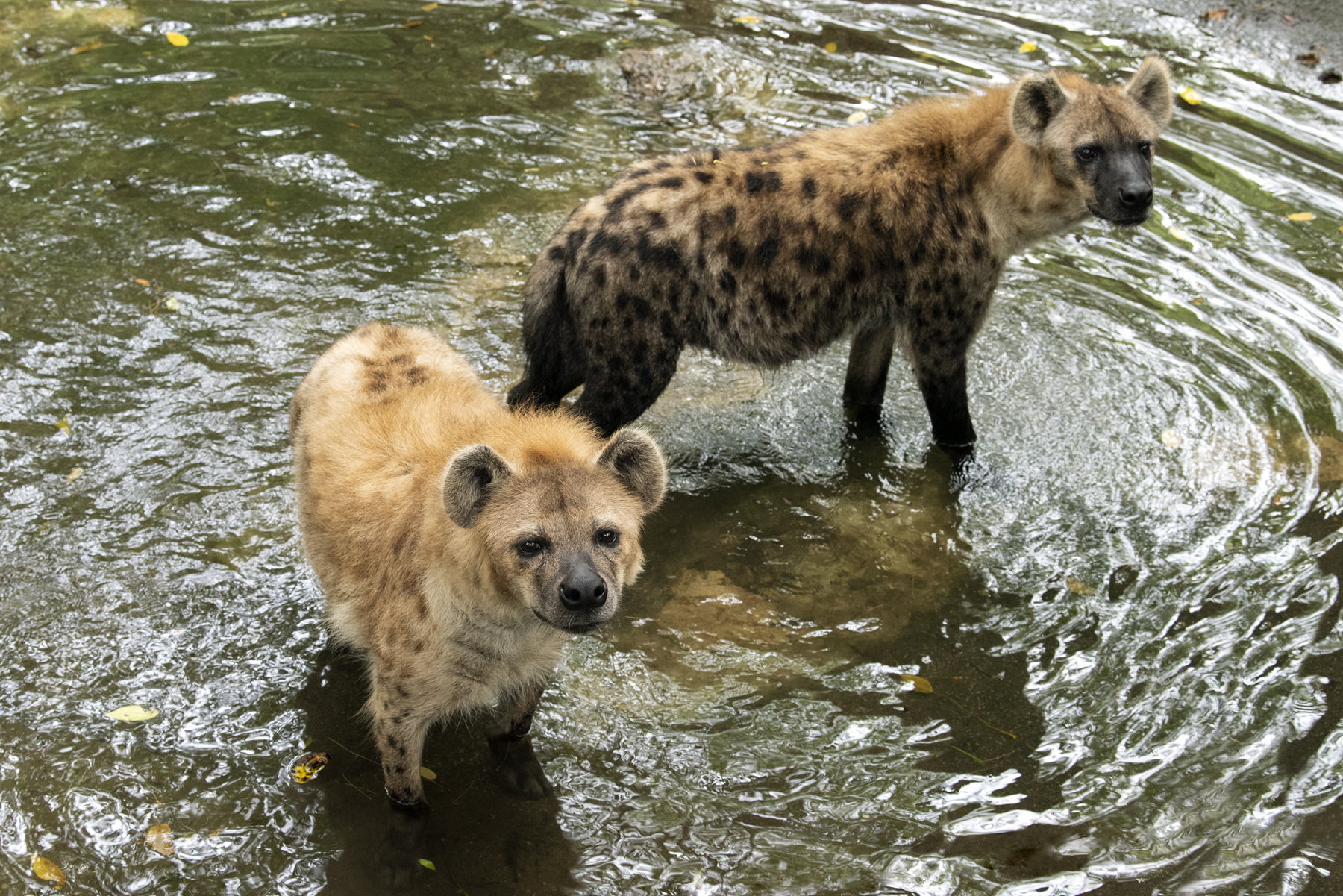
July 24, 2021
Hyenas: Misunderstood Predators of the Savannah
- as seen by -
 Joe Nappi
Joe Nappi
When many people hear the word “hyena”, the thoughts that often first seem to come to mind are that they are vicious, steal all their food, are menacing towards lions, and that they are not all that particularly intelligent. Hyenas, however, are much more than the dark sinister creatures that Hollywood often portrays them as. In reality, hyenas are charismatic, smart, and very successful hunters. And while hyenas will steal food from lions and compete for the same prey, lions are much stronger and are just as much of a threat to hyenas.
There are actually four different species of hyena, with the largest and most well-known being the spotted hyena (Crocuta crocuta). Spotted hyenas are known for their characteristic “laugh.” While it might sound like they have found something amusing, this call is actually made when they want to express excitement. Hyenas will also make long distance whooping calls to defend their territory, as well as a series of whines and growling noises. The social hierarchy of spotted hyenas consists of an alpha female and her female relatives, along with a series of immigrant males that will move between groups to look for mates. Adult males are the lowest on the totem pole in hyena society. Even the alpha hyena’s female cubs will have a higher rank than the adult males in a group.
Spotted hyenas have one of the strongest jaws of any mammal and their jaw muscles and teeth can easily crunch through bone. Strong stomach acids and an efficient digestive system allow hyenas to digest much more of a carcass compared to other large carnivores, being able to digest skin, hair, hooves and even the horns of their prey. WCS’s Bronx Zoo has a pair of spotted hyenas, a female named Kubwa and a male named Robie. Both hyenas love to show off their impressive jaw strength by gnawing through knuckle bones.
Be sure to stop by to see these charismatic carnivores on your next visit to the zoo and remember that they are much more than the dark misunderstood predators that Hollywood often portrays them as.
EDITOR’S NOTE: This week is National Zookeeper Week, July 18-24, 2021, a time to recognize our keepers’ hard work, conservation efforts, and passion in caring for animals.
Nikon D5




Comments
Pingback: 18 Facts About Hyenas That'll Change Your View On These Misunderstood Creatures
Pingback: Grey Wolf Vs. Spotted Hyena: 15 Facts That Show Which Predator Reigns Supreme